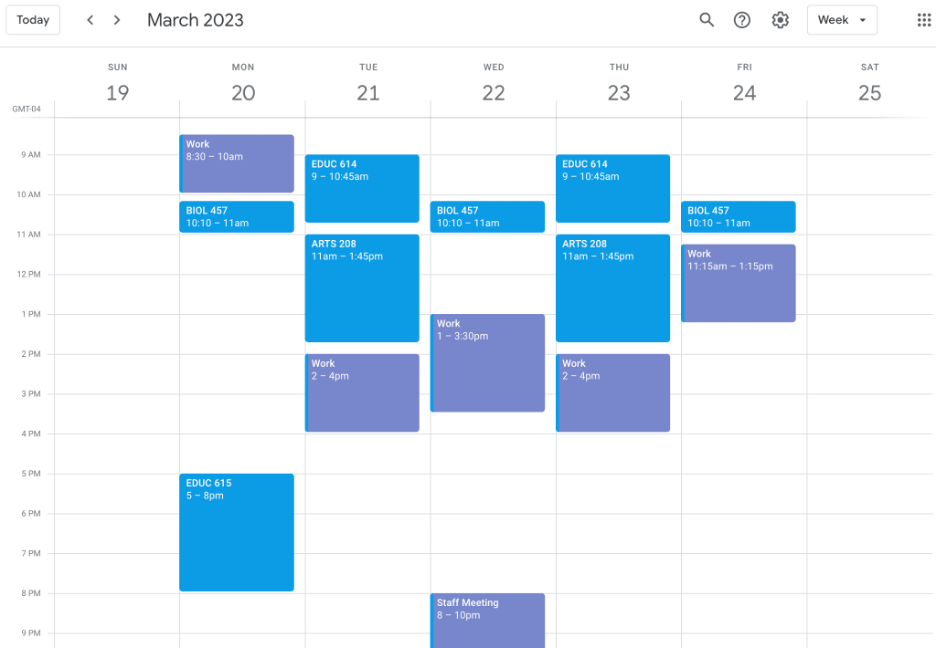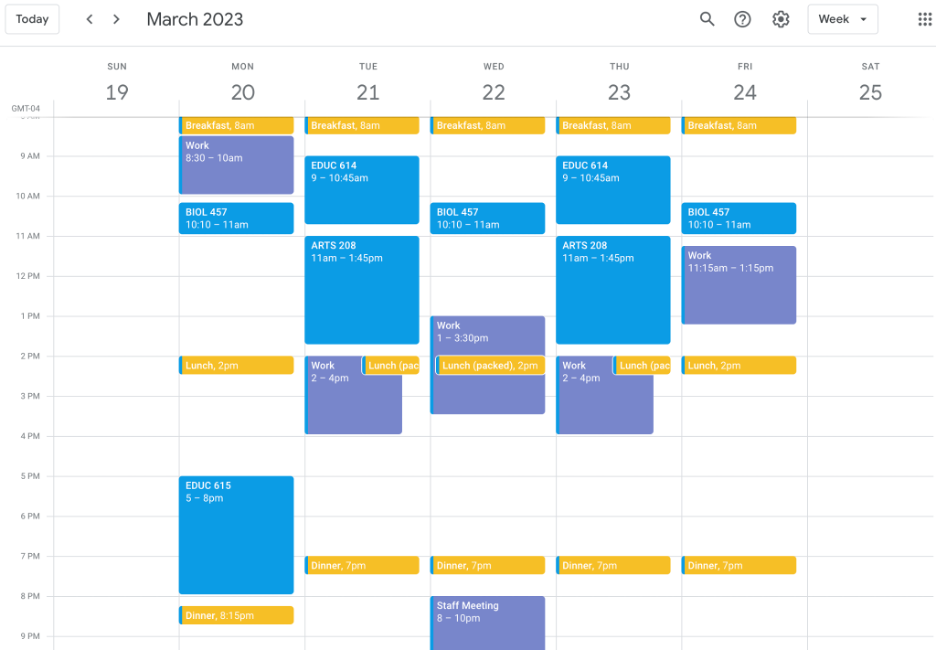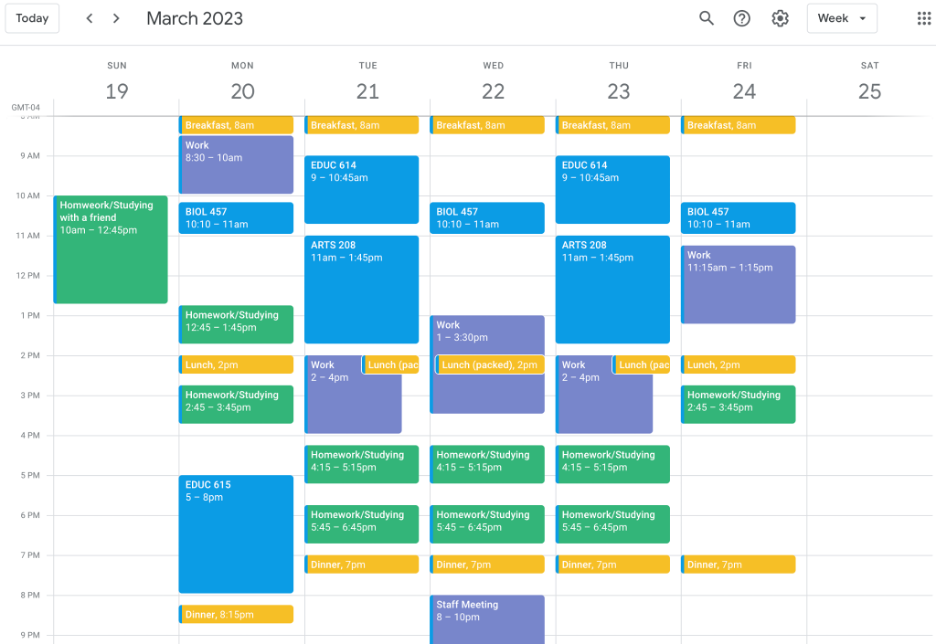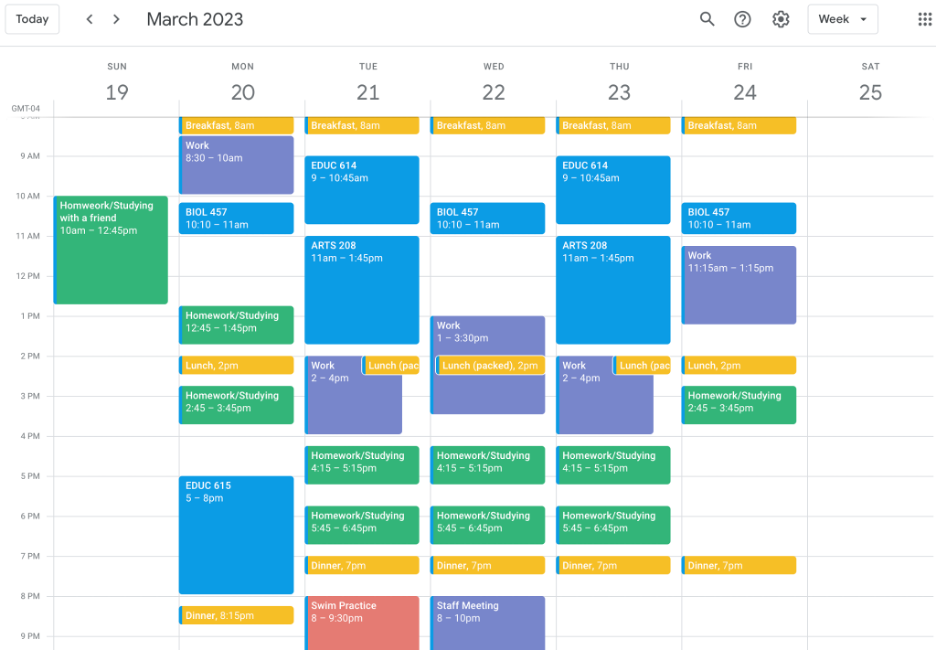Learning to Prioritize Myself as a Person
By Peer Tutor Bella
Like far too many of us at UNC, I used to crave academic validation like nothing else. Every decision I made was driven by having the most impressive grades, degree, class schedule, extracurriculars, career, etc. At the beginning of my academic career, it was easy for me to do just that. In elementary school, academic success meant placing into AIG courses and getting a role in the play. In high school I had to work a little harder to achieve the highest grades and recognitions, but I was still able to confine my schoolwork mostly to classroom hours so I could pack my afternoons with clubs and activities where I could bolster my resume and see my friends. Extracurriculars, exercise, and social life were tackled all in one without compromising my coursework.
I went into college with the same mindset I had in high school but found that succeeding in the ways I was used to meant giving up little pieces of myself. Trying to line up my classes so that I could be done by 2 p.m. as I had been in high school meant I had to give up sit-down breakfasts. Trying to graduate in as few semesters as possible meant I had to take courses that covered more credits, but that I didn’t enjoy. Going to swim practice all week meant I couldn’t hang out with my friends or relax after dinnertime. I started giving up the things that I wanted and needed so that I could still feel successful.
But between the exhaustion of my schedule and the weight of the pandemic, that only felt justified for so long. Coming out of isolation and online classes, I was tired of being so unhappy. I knew that being successful shouldn’t feel so terrible. And I was finally ready to accept that if success did feel that terrible, I didn’t want it anyway.
So, I took some time to think about what I wanted. It was harder than I expected it to be — apparently when you spend your whole life doing what you think you should do instead of what you want to do, you may find that you don’t even know what it is that you want. But I eventually came up with a list of a few goals I thought might lead to more happiness:
- When I am able to choose between multiple courses to fulfill a certain requirement, I will choose my course based on how interested I am in the content and layout, not based on how good they will look on my resume.
- I will make the time and effort to eat 3 balanced meals a day.
- I will make at least one low-cost/effort plan with a friend every week and at least one higher-cost/effort plan with friends or family every month.
- I will spend some time alone or with others pursuing some form of entertainment or a hobby every day, without feeling guilty about it.
The first thing I did to start trying to achieve those goals was drop down to 12 or 13 credit-hour semesters. Three of my goals were intrinsically tied to needing more time, so I cut down on course time. I had previously been piling on my classes in the hope that maybe I could graduate early or maybe I could have an extremely underloaded final semester. When I was going into my junior year, however, I realized I would rather be in school, but happy, for the full 4 semesters I had left than be miserable for only two or three more semesters.
I also started picking my classes based on my interest in them rather than how many gen-eds I could get from them or how much they could boost my GPA. I chose classes I was genuinely interested in so that the assignments wouldn’t feel so grueling and I wouldn’t dread going to class. There were some specific courses I still had to take for my gen-eds and my major, but I was able to be a little more choosy with my major, minor, and general elective classes.

Then I started setting work-life boundaries. I stopped taking 8 AM courses because I knew I needed extra time in the morning if I was realistically going to make breakfast and pack my lunch every day. I also started planning my course schedules so that I had an adequate gap for lunch around the same time every day and so that my classes ended before dinnertime most nights. Making time for eating helped, but I also had to hold myself to sticking to actual mealtimes rather than thinking “I’ll just eat when I’m done with x.”

Next, my favorite change, I stopped doing any schoolwork after dinner. Yes, occasionally if I had a big test or assignment coming up, I would make an exception to that rule. But other than those rare occasions, I allowed myself to do anything besides schoolwork guilt-free after dinner. I have found that my most productive hours are midday anyway, so I would set aside organized time to do my homework during that time frame. As a result, I started making plans with friends again after dinner and even picked up hobbies with the hours I gained. The consequence of this boundary was that if I didn’t get all my homework done during the week, I would have to spend more time doing homework on weekends (but only before dinner time). However, I found that I was far less burnt out on weekends since I was taking time to myself during the week too, and I didn’t mind doing a few hours of homework when needed.

I also had to re-evaluate my role in extracurriculars. Work wasn’t something I could stop doing, so I had to look at my time spent with swim club. I have been swimming competitively since elementary school, and I was used to being one of the fastest in the water. Like most athletes, I loved winning and I loved achieving new PRs. But I had to decide if I wanted to be a great swimmer more than I wanted to achieve the goals on my list — and the answer was no. So I stopped arranging my schedule to accommodate as many swim practices as possible and started going to practice when I happened to be free instead. I still enjoy swimming and I am still on the club team, but the victory became spending time with my teammates and incorporating movement into my schedule once or twice a week rather than winning races.

Overall, I deprioritized the idea I had of success and instead prioritized myself and not only did it make me happier, as I had hoped, it also brought another surprising result: I started performing better in my classes than I was before! Some combination of getting adequate rest, eating well, being interested in what I was learning, and not being unhappy all the time actually allowed me to improve in my courses even though I was no longer prioritizing them over me. Plus, I was able to reap the direct benefits of my goals as well: I started enjoying what I was learning, feeling more focused and energized, and growing my relationships and personal interests. I had been so scared since starting college that achieving success would require being unhappy, but I found just the opposite — happiness brought me success.

